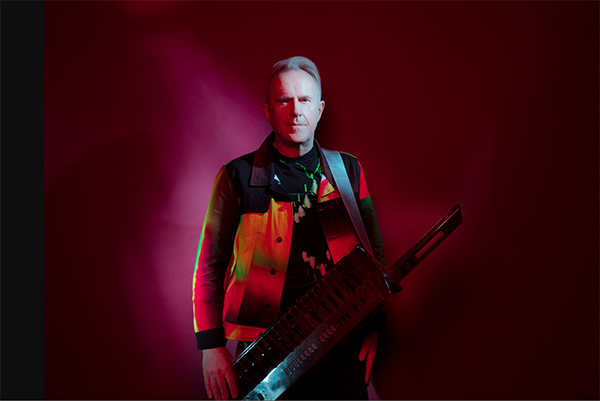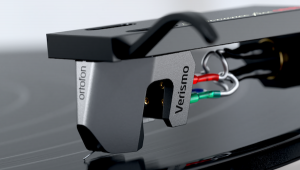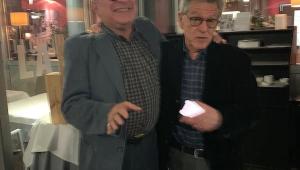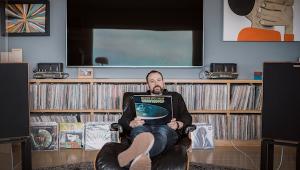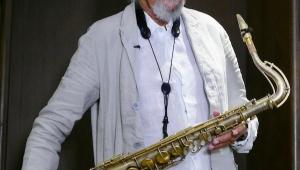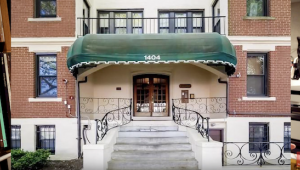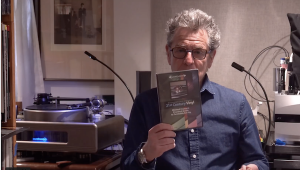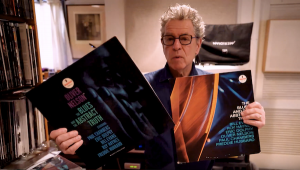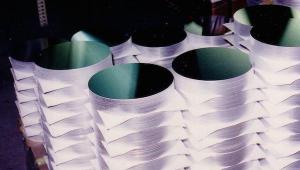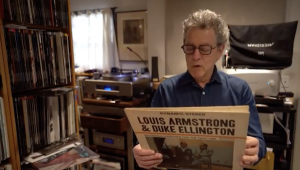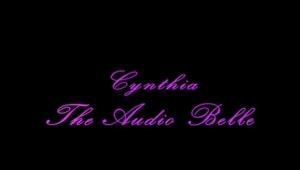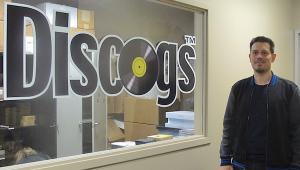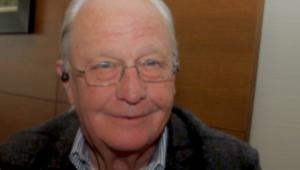Howard Jones on Live Aid at 40, Plus Creating New Songs and Melodic Compositions for His Latest Limited Edition 180g LP, Piano Composed Ivory

To say Live Aid altered the course of many an artist’s career exactly 40 years ago today on July 13, 1985, would be an understatement of epic proportions. Besides the truly worthy charitable cause co-organizers Bob Geldof and Midge Ure rallied everyone together for on that hallowed day, as seen during concurrent performances at Wembley Stadium in London and JFK Stadium in Philadelphia, many musicians turned in career-defining performances during their limited time onstage — or, at the very least, they expanded their worldwide reach in a literal instant.
One such artist got to do so with but a single solitary solo performance. Keyboardist/vocalist Howard Jones — who had recently struck platinum with his March 1985 sophomore album on Elektra, Dream Into Action — took the stage not long after Phil Collins had performed both solo and with Sting. Jones, who at one point sat down with the BBC backstage for an interview with Collins and Sting flanking him, was beyond happy to be involved with Live Aid that day. But first — how did that three-man super-sitdown come about? “The ’80s is such a blur, and you hardly ever saw anyone because you were so busy touring, doing stuff, and going in the studio,” Jones recalls. “There were very few chances to meet people — but I got to meet a lot of amazing people that day.” (See my earlier note regarding understatements.)
Jones was set to perform two songs at Live Aid, but instead only got to play just one — a truly heartfelt solo piano rendition of “Hide and Seek,” the No. 12 UK hit single from his March 1984 debut LP on Elektra, Human’s Lib. You can see that performance in the YouTube clip that’s embedded later in this story — and, if you want to stream the balance of Live Aid in ostensible real-time replay, you can hear it all on 80s Central.
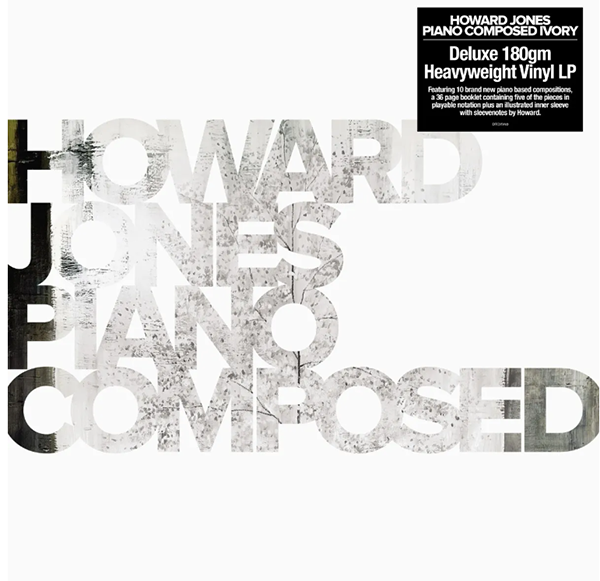
Forty years on, Jones continues to create new and vital work, in addition to touring his long-loved hits (many of them recast with completely different arrangements, mind you). One such new-song offering is his latest — a 180g 1LP limited-edition run of 500 for the all-instrumental marvel that is Piano Composed Ivory (on the Dtox label), an album Jones composed on his beloved Steinway D piano during lockdown, following encouragement from his onetime tourmate, electronic trip-hop composer/technologist BT. The Ivory LP, which sported a quite reasonable SRP of £24.99, is sold out, alas (I have No. 175, btw), but you may be able to find one on Discogs, if you’re so inclined. I rate the Music at a 9, and the Sound at 8.5. Yes, the CD is still available, and it’s on the major streaming platforms too, if you must go that route — but there’s a key difference between the two format options.
“It’s a little bit of a complex release, in a sense,” Jones explains. “There are two versions. There’s Piano Composed Ivory, which is the version you’ll get on the vinyl. And then there’s Piano Composed Spirio, which came about when I got my new [Steinway Spirio] piano, and I was able to then play the files back through the piano and record those versions that way.” Either way you receive it, the music of Piano Composed shows exactly how Jones continues to push his talents beyond the norm.
To cover all of the then and now bases, Jones, 70, and I got on the horn together across the Pond recently to discuss his compositional thought processes behind what appears on the vinyl version of Piano Composed Ivory, his most vivid recollections of performing at Live Aid, and which two British uber-superstars got a truly private performance backstage of a song Jones didn’t get to perform for the gathered Live Aid masses. Hope you find it in everything / Everything that you see. . .
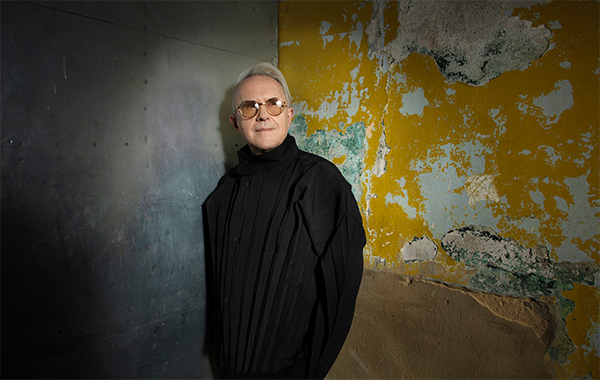
Mike Mettler: In recent years, you’ve been reissuing the balance of your ’80s and ’90s catalog on vinyl through Cherry Red Records. Those of us who had the originals have long since worn them out (both laugh), since records from 30-40 years ago don’t necessarily hold up to the current standards we have for vinyl playback. Howard Jones: Yes, yes. No, that’s true. That is true because — well, actually, I think the CD suffered more from that because we used to do the cuts for vinyl, and then the CD got the same treatment! (laughs heartily)
Mettler: Well, I’m glad you’re keeping a focus on vinyl, so please continue doing that. Before we get into the Live Aid portion of things, I had been listening to Piano Composed digitally before I was able to purchase a copy of the limited vinyl run. What was the decision-making behind releasing it in different options?
Jones: The vinyl version was done before I got the new piano, and that’s me working with samples. I’m still very, very pleased with it — don’t get me wrong. But then, once I got the Spirio, it was like, “Ohh!” I started adding new elements and octaves, and I added new parts and other things. That was such a fun process. In fact, I’m playing the piano so much at the moment — (chuckles) you know, it’s hours each day. I’m enjoying it so much.
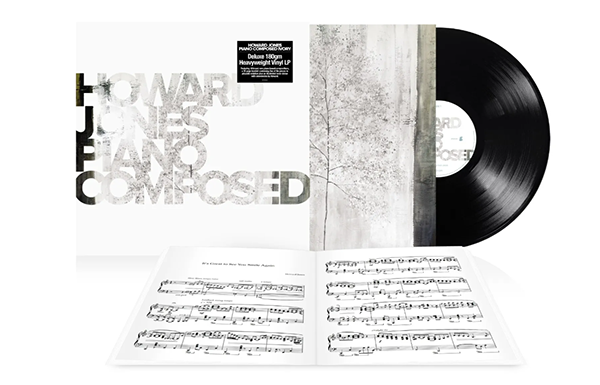
Mettler: That’s great to hear — and it’s been interesting to compare and contrast both versions of Piano Composed, especially since the tracklisting is a bit different between them. On the vinyl, you’ve got the five-and-five split per side — so, sequencing-wise, I’m guessing you had to get into a different headspace as to how you wanted both sides of the LP to unfold.
Jones: Yeah, yes. There was attention paid to the fact that it was gonna be on vinyl with five tracks a side, as you said. But then, once I’d worked with the pieces much more once I got the Spirio, I just felt it needed a different running order, and not start with “Five Pianos” [which appears as Track 1 on Side 1 of the LP]. I wanted to ease people into that a bit more! (chuckles heartily)
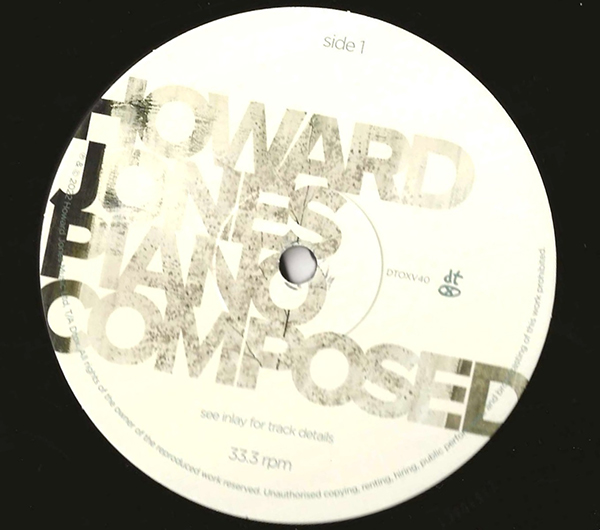
Mettler: Yeah, yeah. No, that makes sense. What’s interesting is, with the digital Spirio version, you went with a recast “The Way You Choose to See It” as the first track instead. As we get into the melody portion of that song, I almost feel like I can hear you singing words that I don’t have there. To me, it sounds like there’s a chorus I’m gonna be singing to at that point that isn’t there because of the way you’ve composed that piece. Did you ever think of adding words to any of these songs, or did you just feel like, “I want to keep them instrumental”?
Jones: That’s so very interesting you should say that, because I have thought of going back to them and doing that. I can’t get away from melody writing, since that is so much a part of me. I have to have that element in everything that I work on.
There are some of those pieces I could go back to, and do words to them. It would be quite unusual because, obviously, time is really fluid with those pieces. They’re not quantized to a grid, or anything like that; I’ve kept all that sort of expression open. Maybe I can revisit those tracks and add a vocal line, but also think about composing in that way — which is, doing the piano piece first, and then adding the vocal on top. So, maybe, yeah.
Mettler: Well, that’s like a deluxe edition waiting to happen — and people do that now, you know. They release deluxe editions that have separate tracks that are just instrumental only, in addition to the same songs on there with the composed lyrics too, so it’s a thing. It could be done.
Jones: Yes. Yeah, yeah, exactly.
Mettler: It’s always a tough question to ask, but how do you choose a song title for an instrumental piece? Is it based on a feeling? Is it something that inspired it? I mean, these are very evocative song titles that give us a lot of interesting imagery we’re then trying to connect to the music.
Jones: Yeah, but I have to say that I didn’t connect the titles directly to the music. I just wanted to have a title that was in some way maybe encouraging or inspirational. I just thought of, “how would I condense what I’m feeling at the moment into encouraging words?”
Mettler: We need a lot more of that right now, that’s for sure.
Jones: Yeah, yeah. I know. And I just feel that I’ll allow people to make those connections themselves.
Mettler: Well, it certainly worked that way for me. So, let’s get into the sonic detail of it all. For me, when I was listening to the very end of “Turning Poison Into Medicine” (Side 2, Track 5), you let the last notes or notes resonate there, where they just play out for the last 10 seconds. I’m just curious — was that a natural thought of something like, “Let’s just let it play out and fade until we can hear the literal end of how the note plays”? Is that a conscious production decision of yours?
Jones: Yes. Yes, that’s right. Because, with a real instrument like the Steinway, it’s nice to allow the sustain to go on as long as it actually does. It’s interesting — my approach to piano playing now is just allowing the notes to ring sometimes and not being sort of neurotic about having to stick in a whole bunch of notes because there’s nothing going on. It’s a more relaxed feeling on my part. When I need to be a bit more “vibey” and shove some more notes in there in order to build up to a climax, then I let those notes ring. That’s a change in my level of confidence with the compositions, I suppose.
Mettler: Well, that’s why I like seeing artists evolve over a period of time. The arc of what you’re doing is ongoing, since you continue to give us new material in addition to all the reissued stuff. Do you feel — I don’t know if the right word is “revitalized,” but like, “I have a lot more to create new besides the classic material that I’m covering live”?
Jones: Yeah. I mean, obviously, I think about these things all the time. I think it’s important to be giving people new things. And, at the same time, what I’ve been doing recently is taking classic HoJo stuff like, say, “Hide and Seek” or even “New Song” [both from the aforementioned Human’s Lib] — taking the theme, and then evolving it in the same way I’ve done with the Piano Composed compositions. I’m taking a tune that everyone’s gonna know — but this time, I begin to evolve it with a structure and then play with that theme, transposing it into different keys, turning it from major to minor — that kind of thing. It’s like bringing new thinking to work that I’ve done before as well. That’s what’s really interesting me a lot at the moment.
Mettler: You mentioned “Hide and Seek,” which is obviously the song you got to play only on piano at Live Aid. Let’s revisit that 40-year-ago moment now, since you had to change a lot of things around just to be able to even play at Wembley that day. You really went all out to make sure you were there onsite.
Jones: Yes, yes. I really, absolutely wanted to be part of it because, as I’ve probably told you before, I missed out on Band Aid [the British supercollective that came together to create the 1984 holiday charity single “Do They Know It’s Christmas?” which, in a sense, led to Live Aid]. I really should have been part of that but, for whatever reason, that didn’t happen. As soon as I heard about Live Aid, I made sure I was in the loop for that. At the time, we were touring North America, as you know, out on the West Coast. I canceled some shows so I could fly back and do Live Aid in London.
I brought Afrodiziak with me, my wonderful background vocalists. We were prepared to do a second song — but in the end, I just got to do “Hide and Seek,” and it was amazing. I wanted to do that song because I thought it was more appropriate for the day, and for the cause. It was something I could really do justice to with just the piano, you know?
Mettler: Right, right. So you knew all along you were just going to do it on piano. Had you thought about, “Okay, I gotta strip this down”? And obviously, the audience reaction to it was something else. You just kind of casually ask them, “Could you help me out here, and sing along?” And then, that reaction you got — I mean, you had to have heard it onstage there and got the full “Wembley effect,” as it were. How did that feel? Were you expecting it to that degree?
Jones: No, I certainly wasn’t expecting it. It was an incredible moment — and I still remember it vividly. Suddenly, the whole audience was joining in, and, I dunno — I felt so supported by them at that moment because it was quite a huge thing, and also all the people watching on TV. It was a scary thing to do.
But then, as soon as they joined in on the chorus, it was like, “Ohh.” I could sort of relax and really enjoy the fact that I was there that day. I was part of it — and, I enjoyed it! (laughs) I was nervous when the song took off, and then they gave me this great, great boost in confidence. It was just a beautiful thing.
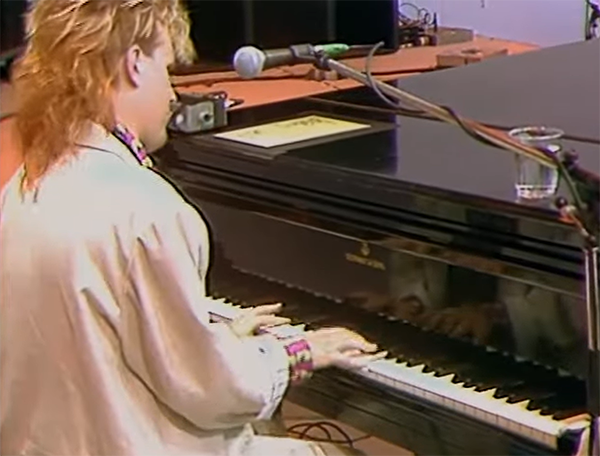
Mettler: Had you done much literal solo piano live at that point at all in your career, or not really?
Jones: Well, you know, I think when I look back on my early shows, I always had a piano element in there. Not the very early days, because I couldn’t take a decent piano with me. But once I got a decent piano, then I would always include a couple of things where I was sitting at the piano and playing and involving the audience. So, I was used to it, but I don’t think anybody was used to playing to an audience that was the biggest audience ever.
Mettler: Amazing. And, if I remember this correctly, the second song you were going to do was “Life in One Day,” right? You and Afrodiziak were going to sing that one together. Did you know before going on that you’d only have time to do one song, or was that an in-the-moment kind of thing?
Jones: No. Well, we were expecting to do two, and that’s why I invited the girls to come with me. Live, on that tour, we’d been doing an a capella version of “Life in One Day,” and it was really going down well; it was lovely.
So, we were waiting to do the second song. We were rehearsing it backstage, because there wasn’t enough room in the dressing rooms. They were tiny. We came out and went on the grass backstage, and I went through the song together with the girls. And then David Bowie and Pete Townshend came out of their dressing rooms to hear us. They were about a couple of meters away, and that was the audience in the end that we got to sing to! (laughs heartily)
Mettler: Wow. Well, that’s not so bad! That’s not too bad at all! (more laughter) There’s no footage of that, is there? Nobody was backstage shooting you guys?
Jones: No! Of course, no! Oh my God — I would’ve died to have footage of that! And obviously, the girls were really disappointed they didn’t get to be on the stage and do it — but I said to them, “Well, look, we played to the most amazing two-person audience!” (laughs again)
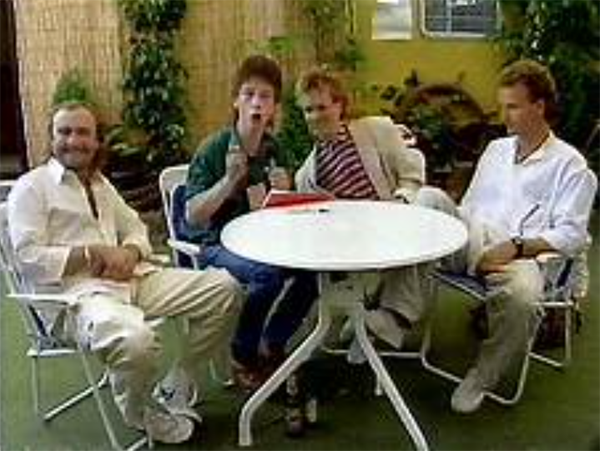
Mettler: And nobody else got to do that, either. Didn’t I also see a picture of you, Sting, and Phil Collins sitting together backstage, all wearing white, during your BBC interview? Of course, everybody’s wearing white at that time, but that must have been a fun moment to share. [Apologies for the grainy screenshot above, but that’s about the best version of it available!]
Jones: Yeah. Yes. I mean, I felt a little bit like “Imposter Syndrome” (chuckles), because it was very early on in my career. I had just gotten going, really. It was going very well, but I wouldn’t feel like that now. I’d feel more confident about myself. But in those days, it was like, “Oh my God!” (chuckles again) But Phil I did know, because we’d done The Prince’s Trust. [Collins also co-produced the re-recoded hit version of “No One Is to Blame,” which appears on HoJo’s Action Replay 1986 Elektra EP.]
And he’d played a piano piece or two there at Live Aid [“Against All Odds,” and “In the Air Tonight”] — on the same piano. As he came off stage, Phil said to me, “Watch out. There’s some dodgy notes at the bottom of the piano” — which terrified me!
Mettler: Interesting. When you came onstage, we could see you testing it out before you started the song. There were a couple of notes or chords you played over on the right side. . .
Jones: (cackling) Yeah, hah-hah! I think there was just some notes down there that were sticking a bit, so I gave them a bit more “wellie” when I played. The effect of it was, though, to make me even more nervous! (more chuckling)
Mettler: Yeah, of course. I mean, it’s only Wembley, after all. (chuckles) Had you played to a crowd close to that size yet at all in your career? Or was that the biggest at that point?
Jones: Oh, well, I think that’s the biggest I’m ever gonna play to. There were 100,000 in Wembley, which was more than was allowed. And then there was the big 2 billion, or whatever it was — the worldwide audience watching. It’s never gonna get bigger than that.
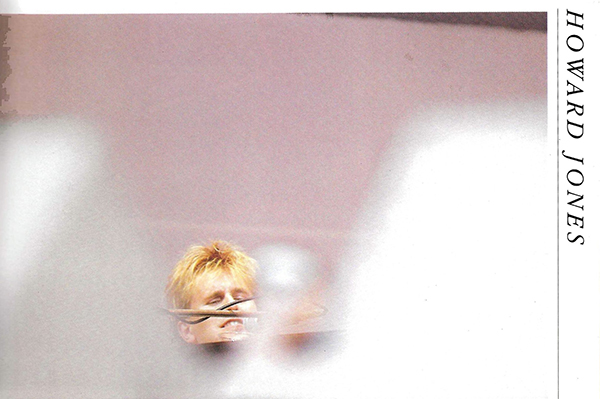
Mettler: I went to my shelves, and I found the original Live Aid book. I don’t know if you have this anywhere or not, but here’s the shot they have of you in it. (MM opens it to the page HoJo is on, and holds it up for him to see) How about that, huh?
Jones: (more hysterical laughter) I know, I know! In a way, it’s sort of — that’s the only shot of me doing it. Obviously, there’s the video, which is great, but it’s very mysterious, isn’t it? It’s like an ethereal being is there, or something. (laughs again) When you first see it, you go, “Oh, is that the best they could do, to only find this one image?” But actually, as time goes by, now it stands out amongst everything.
Also, the other thing that I really feel good about is when Geldof did Live 8 [in 2005], and they played some clips from the original Live Aid. One of them was me playing “Hide and Seek,” which I was so proud of — and I told him that. It was so nice.
Mettler: Did you get to talk to Bob and Midge [Ure] beforehand? Who did you talk to, to actually get into the Live Aid mix, so to speak?
Jones: Well, I said to my manager David [Stopps] at the time to deal with that. Geldof had some rules about it, which is that you’d have to have sold a million albums in the last six months, so that he’d get the people who people wanted to definitely see. And I had done that, fortunately. Midge, I’d met before, but I’ve gotten to know them both much more since then. I see Geldof at various festival things, and Midge has spent six weeks with me on tour.
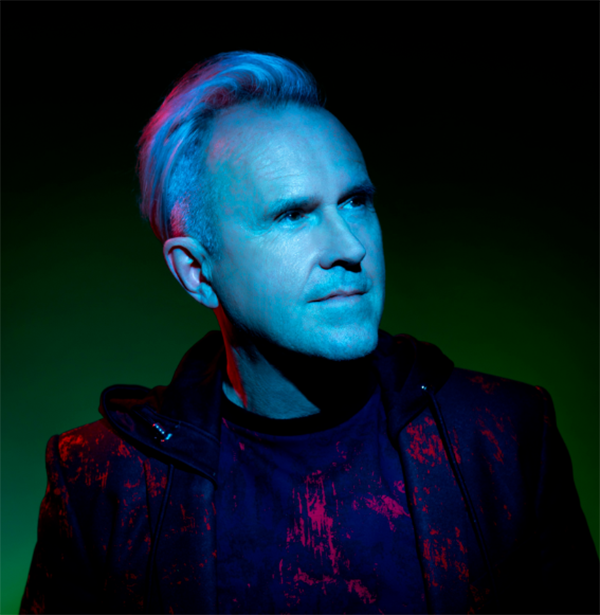
Mettler: Well, let’s jump back to the present — or rather, the future. What I’d like to do to finish up here is, I wanna jump us like 50 years into the future, where it’s gonna be 2075. And, as I say, unless there’s some weird science going on, we may not physically be on the planet at the time, although you might be. . .
Jones: (chuckles) Oh no, I won’t. No, I definitely won’t.
Mettler: Oh, okay. Well, maybe we will, or maybe we won’t (both laugh), but however people listen to music in those days ahead and they type “Howard Jones” into their listening device, what kind of a listening experience do you want a future listener to get from your music?
Jones: Well, I hope they’ll feel a boost of positivity from things. Songs like, as you said, “Things Can Only Get Better,” or “Like to Get to Know You Well.” Or things like “Don’t crack up,” or “Throw off your mental chains.” [The latter two lines are lyrics from “New Song.”]
I think those things will always be current, because we’re always gonna have to deal with problems and difficulties our whole lives. So, having somebody offer a bit of encouragement to do it — that’s right. That’s what I would hope. And with “Hide and Seek” as well, there’s also “hope you find it in everything.” So, yeah, I would hope that would be the legacy, really, for future people.
Author bio: Mike Mettler is the editor of Analog Planet in addition to being the music editor of our sister site Sound & Vision, and he’s also a contributing music editor to one of our other sister sites, Stereophile, as well as the regular Vinyl Icons column scribe for Hi-Fi News. Plus, he’s quite partial to vintage 1967 Mustang fastbacks, but that’s a story for another time and place.

HOWARD JONES
PIANO COMPOSED IVORY
180g 1LP (Dtox)
Side 1
1. Five Pianos
2. The Way You Choose To See It
3. Everything Is Connected
4. Cherish Life
5. It’s Great To See You Smile Again
Side 2
1. It’s In Your Hands
2. Winter Always Turns To Spring
3. Finding The Silver Lining
4. Hope Is A Decision
5. Turning Poison Into Medicine
